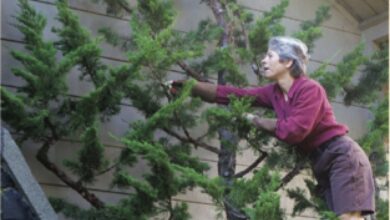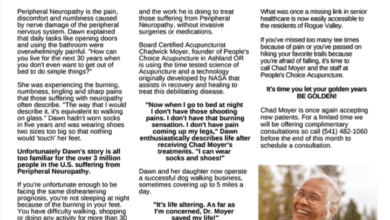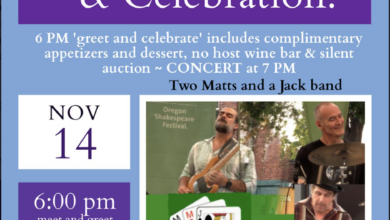Abby Lewis Golden Rule ReEntry
In today´s interview I speak with Abby Lewis of Golden Rule ReEntry.
What is Golden Rule ReEntry?
Golden Rule ReEntry is a trauma-informed organization that assists the formerly incarcerated by engaging the community. Through kinship, networking, classes and services we foster connection as well as personal and professional growth.
We were founded in Southern Oregon in 2020 and work with individuals who have been impacted by incarceration. We believe that people who have done their time deserve the opportunity to be accepted back into the community and the chance to find healing and fulfillment. This not only helps them personally but lifts society as a whole – including future generations.
At Golden Rule ReEntry, our purpose is to assist each individual to find fulfillment for themselves, whether it be overcoming the effects of trauma, finding a vocation, giving back to the community, having healthy friendships, exploring creative impulses or launching a business – whatever each participant wants to do – Golden Rule ReEntry is there to help make it happen in a safe and supportive environment.
What does trauma-informed mean?
It means acknowledging that people who have experienced trauma or grew up in toxic environments (neglect or abuse) may process and respond differently to situations. It allows us to reframe how we see behaviors and ask not “What’s wrong with you?” but “What happened to you to make you act this way?” It’s more than compassion, it’s recognizing that trauma affects neurobiology and that some behaviors have a root cause in how the brain is wired. The Five Guiding Principles of being trauma-informed are: safety, trustworthiness, choice, collaboration, and empowerment. Some simple examples of being trauma-informed might be not blocking a doorway (safety) or using collaborative problem solving (choice, collaboration, empowerment). We prioritize creating safety and empowerment for the people we work with and are patient with the process. Much of trauma results from a lock of control of what is happening to you. That’s why prison can be innately traumatizing. Most people in prison experienced trauma growing up as well and some find the post-prison struggle and rejection traumatizing. We are often working with people who have many, many layers of trauma.
One of my favorite concepts is “unconditional positive regard.” We have unconditional positive regard for our participants even when they make mistakes. It’s healing for them to know we are not there to judge them, but to witness their journey and to be there with a helping hand outstretched.
I hear you talk about community engagement a lot. What do you mean by that?
Community engagement is at the heart of our programming because we want to be more “relational” than “transactional.” There are so many fantastic organizations in Southern Oregon offering housing support, food security, career support and substance use disorder treatment that we can build on this by focusing on the “connection” component of providing service. By engaging community members to become navigators, coaches or to offer a class or service, we are demonstrating to the people we serve that the community cares about them, that we will give them time and space in our lives. Sometimes a friendly face, a ride, or a coffee can make a difference. Evidence is showing that connection is a cure for addiction. Combined with peer support, we want our participants to feel supported while connecting them with the resources they need. As our volunteers see the humanity in our participants and talk about their experiences with others, we hope to shift the lens through which the public generally sees people who have gone to prison.
How can people get involved?
Golden Rule ReEntry’s primary model is to Engage the Community by partnering with individuals and organizations that have time, skills or services that they can offer.
Volunteer Community Navigators offer one on one emotional, social, resource navigation and transportation support. Our Navigators are connected in an online community and bonded through group trainings in order to leverage the skills, resources and connections of the entire group. Participants who reach a level of stability in the community will be encouraged to give back by becoming peer support Navigators themselves. We carefully pair our volunteers with participants, and we all work as a team to help them thrive.
Community Collaborators are individuals or organizations that work closely with Golden Rule ReEntry to tailor their offerings to meet the needs of our participants. Some of our amazing community collaborators are Gene Tresenfeld who is a life coach and has worked with many of our participants. Vanessa Hopkins created and led our Rest & Revive meditation series and will be also developing a few of our participant’s life stories into a video piece through a workshop series. WinterSpring is a local organization that did a grief workshop for folks who lost a loved one while they were incarcerated.
The Golden Rule Network reaches even further into the Community by allowing individuals and businesses to offer support on an ad-hoc basis by sharing participant needs through the Golden Rule Network channels – social media, emails, and dedicated app (coming soon!).
Anyone interested in learning more or getting involved is encouraged to reach out by emailing, calling, or filling out our contact form on the website. There are other ways to plug in as well. We are building our board and can also use help with research and analytics. We have an open Volunteer Orientation on Oct 22, 2022 in Medford. Details and Registration will be on our website at www.GoldenRuleReEnty.org.
What kind of volunteer training do you offer?
On Saturday Oct 22 we will be offering a 2 part training in Medford. The morning session will cover Adverse Childhood Experiences (ACEs), being trauma-informed, active listening and collaborative problem solving. The afternoon session will cover local resources, volunteer protocols and safety training. We will also provide ongoing deep dive training by Zoom as well. Our last training cycle covered ACEs, mental health first aid, suicide prevention, active listening and holding space, presentations from other reentry groups, an introduction to parole officers and supervision, understanding grief, and we also talk about different resources available in the area. Our volunteers all learned so much and many of the things we cover can improve their lives as well. Anyone who is interested in learning more should go to our website, and we encourage you to reach out and call or email us if you have questions. We love talking with people.
Why would someone want to volunteer?
It is SO rewarding to make a real impact in someone’s life and it’s a great way to build community in a meaningful way. We offer a lot of training and hands-on experience, so for some it’s also a great resume builder. If you are considering a career in social services, this is a fantastic way to get hands-on experience. There are also many other reasons to volunteer. When you help our participants in a meaningful way, they benefit, you benefit and our community benefits.
I absolutely love everyone I work with. I’m humbled by the adversities they have and continue to overcome. They amaze me. Our volunteers will feel blessed by getting to know them.
What are the long-term goals of GRR and what is your long-term vision for the organization?
We have a huge trades training program in development called the Pioneer Project. It will be a work training center in Southern Oregon to prepare our participants for well paying jobs manufacturing eco-friendly, fire resistant modular homes, tiny homes and shower/laundry/toilet trailers. These products will help address the housing shortage and other issues created by the growing number of displaced people in society.
While participants are at our facility, we will be able to offer immersive, person centered, wrap around reentry support. It’s in development now and we are building a coalition of organizations to offer the best possible experience with the best outcomes possible for our participants.
We want to see as many people as possible who are coming out of prison find their way to happiness and constructive, productive and positive lives. It’s good for them, but it’s also good for the community.
We want to help shift the lens through which people view and treat the formerly incarcerated. We will do education campaigns to educate people about the impacts of trauma on the brain. Like Homeboy Industries in Los Angeles who have an incredibly successful program for former gang members, we want to build public support for those who just need a chance to do the right thing and thrive. After all, the Declaration of Independence says that life, liberty and the pursuit of happiness are inalienable rights. When someone is released from prison, they have been punished for their crimes. They have done their time. It’s not American to keep punishing them for the rest of their lives. It serves no one. We will show the humanity of the formerly incarcerated.
What are some of your other programs in development?
Life skills training with community coaches to help with goal setting. A Career Support program that includes self-assessments to identify strengths and micro loans for entrepreneurs. We’re developing an art training and ecological field trip series called Wild Rogue Expressions. We’re working on a life story workshop and video project with filmmaker Vanessa Hopkins who does amazing work. Thanks to the United Way, we already have a Commuters Assistance Fund to help our participants clear up their driving records and get hardship permits so they can get better jobs.
What books would you recommend people read to better understand Golden Rule ReEntry participants?
What Happened to You? by Oprah Winfrey & Dr. Bruce Perry
Complex PTSD: From Surviving to Thriving by Pete Walker
In the Realm of Hungry Ghosts: Close Encounters with Addiction by Gabor Maté
Healing Collective Trauma: A Process for Integrating Our Intergenerational and
Cultural Wounds by Thomas Hübl
The Body Keeps the Score by Bessel van der Kolk
Atlas of the Heart by Brené Brown
Just Mercy by Bryan Stevenson
The New Jim Crow: Mass Incarceration in the Age of Colorblindness by Michelle Alexander
Caste: The Origins of our Discontent by Isabel Wilkerson
What are the results for the people you work with?
Results may vary, and success has many definitions, but our goal is that they find healing, forgiveness, and fulfillment in life because with that comes lasting change. We help people find their strengths and build on them or help them find their passion and work to connect them with that passion. We want to see our participants integrating into the greater community and leaving the past habits and ways behind because they have something better to work towards. It’s hard to work for minimum wage if you’re used to making lots of money illegally. Most people trying to start over also must avoid old friends and often end up just grinding through life. Without healthy interests, outlets and friendships, life can become joyless. That’s partly why the recidivism rate is so high – 60%-80%. It’s crazy.
If we can help plug our participants into inspiring and rewarding endeavors, they have a much better chance of breaking free of the cycles of poverty, crime, and addiction. It takes a village. If we want safer communities then we heed to take care of the folks coming back home from prison.
Here is one of my favorite quotes from Father Gregory Boyle, founder of Homeboy Industries. “Imagine a circle of compassion. Imagine no one standing outside of that circle. We move ourselves closer to the margins so that the margins themselves will be erased. We stand there with those whose dignity has been denied. We locate ourselves with the poor and the powerless and the voiceless. At the edges, we join the easily despised and the readily left out. We stand with the demonized so that the demonizing will stop. We situate ourselves right next to the disposable so that the day will come when we stop throwing people away.”
Abby thanks so much for speaking with us today and for the important work you are doing in our community.
Shields, it’s an honor and a privilege to speak with you today. Thank you for providing a platform for us to reach a wider audience.
—–
Learn More:
www.GoldenRuleReEnty.org




